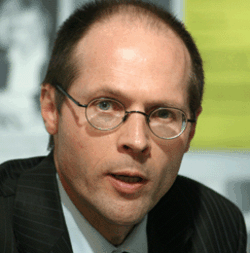International Land Coalition | 12 January 2011 | français
Opinion piece
by Olivier De Schutter, UN Special Rapporteur on the Right to Food
In the international discussion surrounding the phenomenon referred to as ‘land-grabbing’ – the acquisition or long-term lease of large areas of land by investors –, the debate has focused on whether or not this development can be regulated at regional or international level, and if so, how. Large-scale investments in farmland have been criticized, chiefly, because of questions about the capacity of the countries targeted by these land deals, many of which suffer from problems of governance, to effectively manage these investments in order to ensure that they contribute to rural development and poverty alleviation : the argument is that, even where large-scale investments in farmland might appear desirable in theory – in the presence of ‘under utilized’ land that cannot be developed without the import of capital –, it may be impossible in practice to ensure that it will lead to ‘win-win-win’ situations in which all stakeholders concerned gain.
If that were the only problem, then appropriate regulation – and incentives to manage such investments correctly – may indeed be a solution. But that is not, in fact, the only problem. For the real concern behind the development of large-scale investments in farmland is rather that giving land away to investors having better access to capital to ‘develop’ it implies huge opportunity costs, as it will result in a type of farming that will have much less powerful poverty-reducing impacts than if access to land and water were improved for the local farming communities : there is a clear tension between ceding land to investors for the creation of large plantations, and the objective of redistributing land and ensuring more equitable access to land, something governments have repeatedly committed to, most recently at the 2006 International Conference on Agrarian Reform and Rural Development.
Hunger is not the result of there being too little food produced; it is the result of massive rural and urban poverty, the latter often the result of former as slums around large cities have grown, following rural migration, because small-scale farming was not a viable option for many. Accelerating the shift towards large-scale, highly mechanized forms of agriculture will not solve the problem: it will make it worse. It will further exacerbate an already highly unequal competition between large-scale, industrialized types of farming – that can take over markets, but also produce vast social and environmental externalities – and small-scale farming – on which many rural poor depend for their livelihoods –. This could cause massive social disruptions in the rural areas.
What we need now is not just investment into agriculture: it is a vision that goes beyond disciplining land deals and providing policymakers with a check list of how to destroy global peasantry responsibly. If it is to be responsible truly, agricultural investment must be investment that benefits the poor in the South, rather than leading to a transfer of resources to the rich in the North. It must be investment that truly reduces hunger and malnutrition, rather than aggravating them. It is my belief that we have been moving both too slowly and too fast: too slowly, because a phenomenon – the increase of commercial pressures and speculation over land – has been developing on a very broad scale without the international community acting in a truly coordinated way to guide this development; and yet too fast, because we have focused on how to promote responsible investment, when investment can only be seen in a much wider context, and as one small part of a much broader strategy. What we need is, in sum, to think beyond the debate about access to land as it is framed today.
Olivier De Schutter is the UN Special Rapporteur on the right to food.














